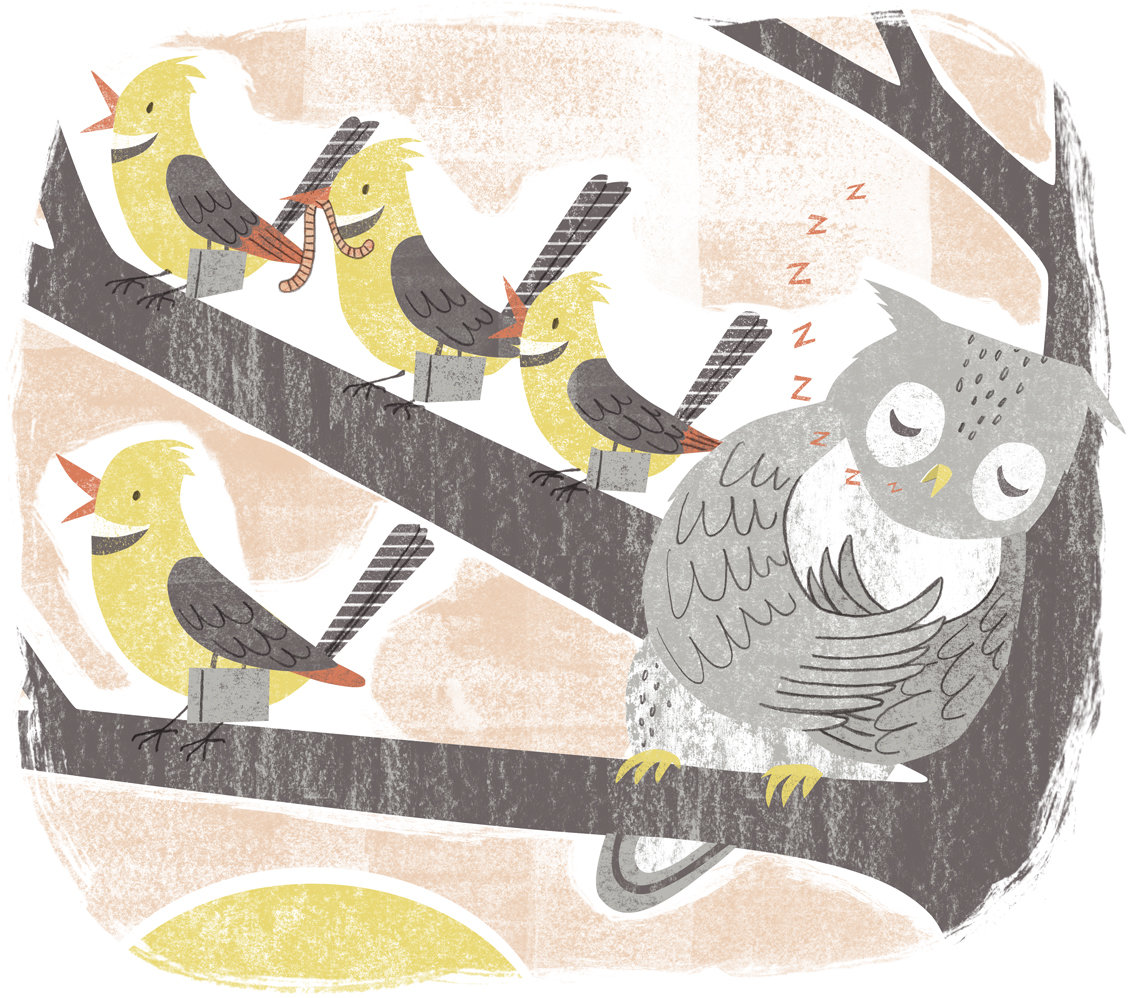Does the early bird really catch the worm? The boss may think so, but is it true?

The esteemed management journal recently reported the results of three studies that indicate energy levels and times of day are critical to executive decision-making.
Consider, for example, the impact of energy on ethics. A Harvard University study by Maryam Kouchaki offered subjects simple task-related rewards and secretly monitored their behaviour. Koucahki found “people were 20%-50% more likely to be dishonest in the afternoon, because they were depleted of the resources that they needed for self-control.
“Gradually increasing fatigue from unremarkable activities can lead to systemic moral failure.” Intrigued by the findings, three other US researchers wondered if there was any difference in the ethical behaviour of “larks” and “owls” – the popular, though hardly scientific, categorisation of workers into morning and evening people.
The researchers put subjects through a series of games in which they were paid money for passing, and had money removed if they failed. Again the subjects did not know they were being monitored. “We predicted that larks and owls would follow different patterns of ethical and unethical behaviour over the course of a day.
“Because their energy levels should follow different patterns, and this energy is crucial for resisting temptation, we expected larks to be more unethical late at night than early in the morning, and owls to be more unethical early in the morning than late at night.” The result, as the graph shows, confirmed the hypothesis.
The studies (below) have implications for the way we manage staff – but also the way we manage ourselves. Take for instance the way we judge performance. A third recent study analysed attitudes of managers towards flexi-time workers, that is, employees who start earlier or later than the usual 8.30am. Flexi-schemes are increasingly popular as companies try to help staff avoid traffic gridlock or manage family time. The schemes are great for workers. But what do managers think?

The study conducted two experiments, one a field test and one a simulation. In both experiments the overwhelming result was the confirmation of our parents’ stereotypes of early risers as better people than “lazy stay-in-beds”. The study showed that supervisors rated employees who started work earlier in the day as more conscientious than their later-starting peers – and gave them higher performance ratings. That’s despite the work hours and output being the statistically the same. It seems that in business your boss still thinks the “early bird catches the worm”.
But there’s a twist. Lark managers and owl managers were revealed to have quite different perceptions. “In both the field study and the lab experiment, the effects were strongest for employees who had supervisors who were larks, and disappeared for employees who had supervisors who were night owls,” say the researchers.
Worth thinking about next time you make an important decision, or give or receive a performance review. Is your lark/owl status affecting your judgement – or your morals?




